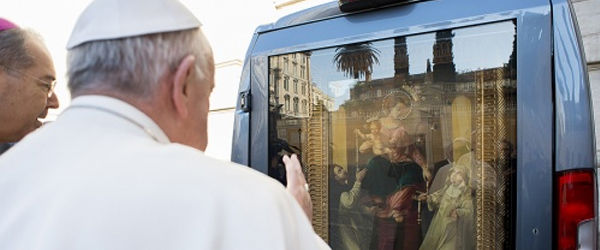In the last three years Luz Ruiz has slowly recovered from the loss of her 23-year-old son Roberto “Bobby” Ruiz Jr. But she openly says it is “God’s business, not hers” to forgive his murderer.Her healing process has been tainted by moments of anger, depression, disillusionment, disappointment and even moments of mental blackouts.“I just wanted to forget about everything,” she said. “The pain was so strong, unbearable.”Slowly, Ruiz has come to terms with her loss, especially after joining Parents of Murdered Children Inc. in the San Gabriel Valley, where she found support from people who had gone through similar pain.Helene Davis has forgiven her son Darrell Davis’ murderer, but still chokes up when describing how he was killed following a verbal confrontation with the offender.Dick Harris has also forgiven the gang members who killed his son Bryan and his girlfriend back in 1985, but becomes tearful when talking about it.The three are members of different nonprofits that support families and friends of victims of crime, who gathered Sept. 21 at the Provincial Center of the Religious of the Sacred Heart of Mary to discuss “Healing wounded hearts: Our responsibility to victims and survivors of crime.”During the one-day seminar sponsored by the California Catholic Conference’s Office of Restorative Justice, participants heard concepts such as: a prison system that needs a humility-check; crime is a problem of the community at large; advocates need to be present in courts; and the community is ill-prepared to support victims of crime.“The bottom line is that we have a broken criminal justice system and we are not addressing it,” said Auxiliary Bishop Gabino Zavala, during his opening remarks. Those who spoke on behalf of the victims and their families — Ruiz, Davis and Harris and two survivors of crime, Jeri Elster and Jaimee Karroll — said on many occasions victims do not have a voice, thus leading many to start organizations to accompany them in their journey.“We’re not hearing the anger people are expressing,” said Elster, a specialist on violence prevention. “Politicians and the media haven’t got this message yet.”Karroll, associate director of training, evaluation and curriculum of the prison rehabilitation program Insight Prison Project, shared her experience of being abducted, sexually assaulted and tortured at the age of nine. She said providing a forum where people can tell their stories is an important way of helping them in the healing process.“Truth is a story, it’s not a concept,” said Pastor Ruett Foster, from Community Bible Church in Culver City, who lost a son in a shootout between gangs, but who also stressed forgiveness as the central component in the healing process. “The Bible is a collection of stories, individuals, communities and nations. Stories of God’s redemption and humanity.” As a family and marriage therapist, Jesuit Father Joe Spieler suggested meditation as a “self-soothing” therapy to turn the “hot memories into bad memories” with less toxic content. He led the audience into a short spiritual exercise.“We need to keep lobbying,” said Bishop Zavala, “keep pushing to bring healing to the community and we need to bring all the players together: offenders, victims of crime, families and friends.”For more information about restorative justice, call the archdiocesan Office of Restorative Justice, (213) 438-4820. To contact the California Catholic Conference’s Restorative Justice Office, call (916) 313-4015.{gallery width=100 height=100}gallery/2011/1014/victims/{/gallery}

